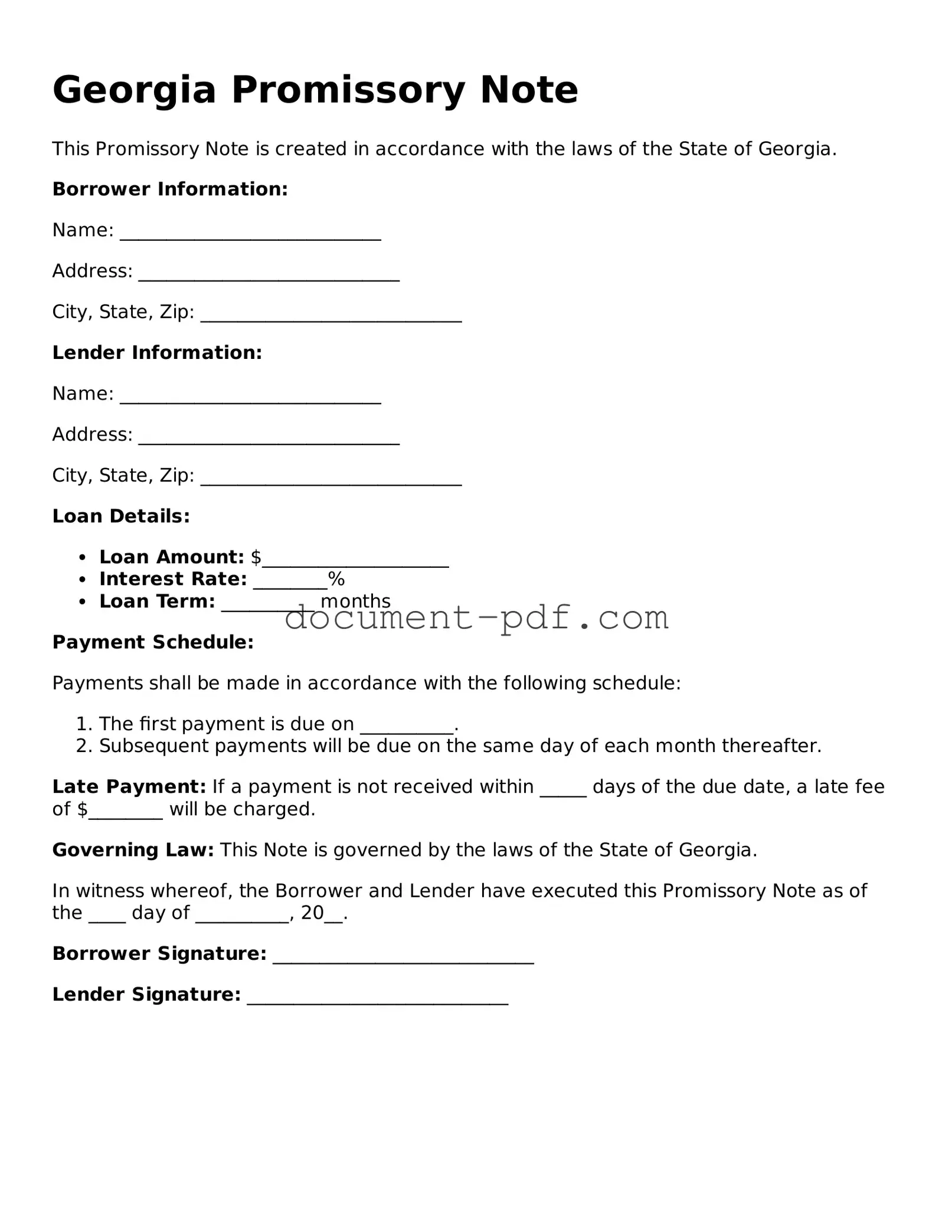Attorney-Verified Georgia Promissory Note Template
A Georgia Promissory Note is a legal document that outlines a borrower's promise to repay a specified amount of money to a lender under agreed-upon terms. This form serves as a crucial tool in financial transactions, ensuring both parties have a clear understanding of their obligations. If you’re ready to take the next step, fill out the form by clicking the button below.
Access Promissory Note Editor Here

Attorney-Verified Georgia Promissory Note Template
Access Promissory Note Editor Here
Finish the form without slowing down
Edit your Promissory Note online and download the finished file.
Access Promissory Note Editor Here
or
Click for PDF Form
